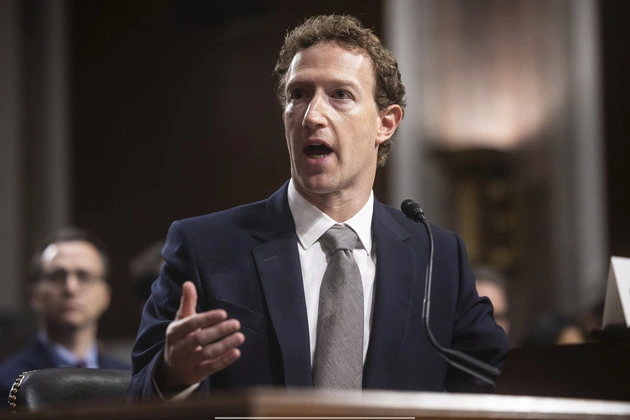
Mark Zuckerberg’s Legal Battle Unraveled
Meta CEO Mark Zuckerberg recently found himself embroiled in a high-profile legal battle in a Washington courtroom. The case revolves around his past business decisions and the alleged monopolistic practices of the social media giant he now heads.
Government lawyers have intensified efforts to dismantle Meta, highlighting Zuckerberg’s aggressive acquisition strategy that led to the purchase of Instagram and WhatsApp in 2012 and 2014, respectively. The prosecution argues that these moves were aimed at stifling competition and solidifying Meta’s dominance in the market.
Insights from the Courtroom Drama
Contrary to the government’s portrayal, Zuckerberg and Meta’s legal team have vehemently defended their actions. They have refuted claims of anti-competitive behavior, citing the evolving landscape of social media platforms and the constant battle for user engagement.
As the legal proceedings unfold, the possibility of Meta being compelled to divest Instagram and WhatsApp looms large. This potential outcome could have far-reaching implications for the tech giant, reshaping the digital landscape significantly.
Expert Analysis on the Trial
Former FTC Chair Bill Kovacic, now a prominent figure at George Washington University’s Competition Law Center, dissected the intricacies of Meta’s legal woes on the POLITICO Tech podcast. He shed light on the pivotal moments of the trial and the underlying motives driving Meta’s acquisition strategies.
In a nuanced analysis, Kovacic highlighted the dual objectives visible in Zuckerberg’s past correspondence. While there was a genuine intent to enhance user experience, concerns about the competitive threat posed by platforms like Instagram were also evident.
Antitrust Debate and Market Definition
The heart of the legal dispute lies in defining Meta’s market dominance and assessing the competitive landscape. The FTC contends that Meta holds a monopoly in ‘personal social networking,’ with Snapchat and MeWe as perceived competitors.
However, Meta’s legal team challenges this narrow market definition, emphasizing the evolving nature of social media platforms and the emergence of viable alternatives. Judge James Boasberg’s skepticism regarding market definitions adds complexity to the case.
Speculations on the Verdict
Amidst speculations about a potential breakup of Meta, the odds of such a drastic measure remain uncertain. Judge Boasberg’s assessment of the evidence and the perceived competitive harm will be instrumental in determining the outcome.
The court’s decision hinges on whether the alleged antitrust violations warrant a divestiture of Meta’s assets or if alternative remedies can address the concerns raised by the prosecution.
Potential Political Interventions
Speculations abound about possible political interventions in the case, with reports suggesting lobbying efforts by Zuckerberg to seek a settlement. The involvement of key political figures adds a layer of complexity to the legal battle, hinting at broader implications beyond the tech industry.
As the trial progresses, the interplay between legal arguments, regulatory scrutiny, and political dynamics underscores the significance of this landmark case.











